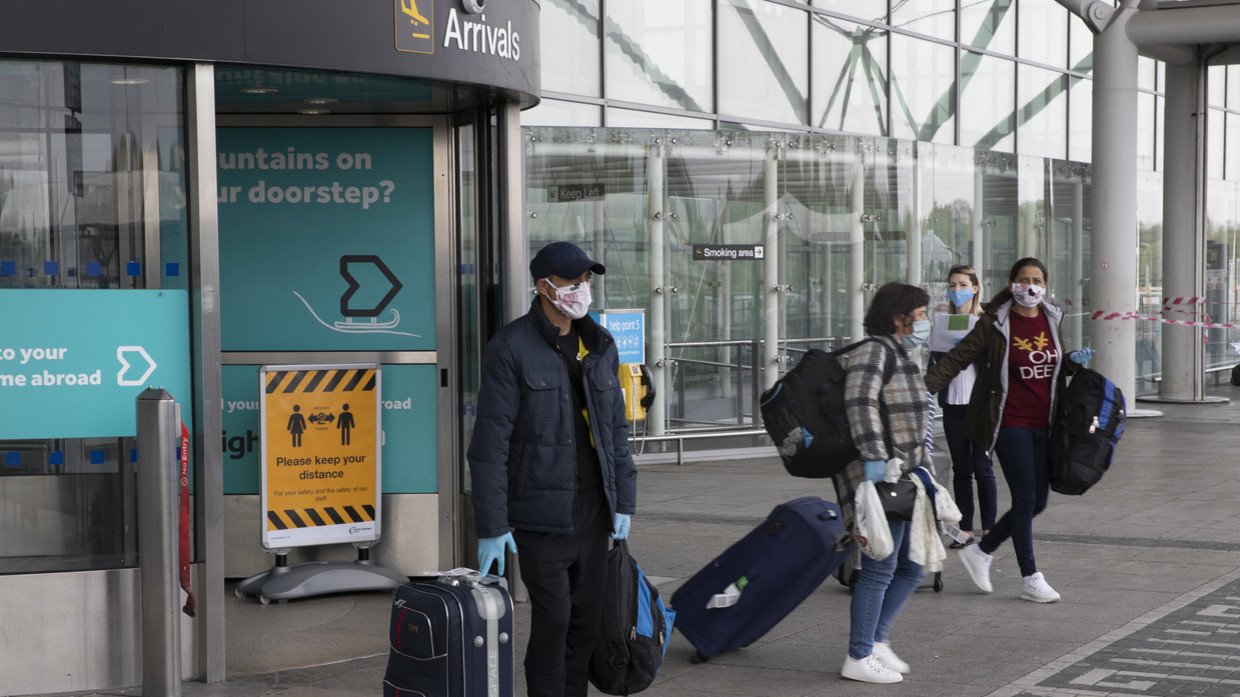There is something shameful about the shipping in of Romanian farm workers. Not because I have any problems with them, but because at a time of national emergency we should be mobilising people to contribute to saving our farms.
An emergency airlift of Romanian farm workers has landed in Britain to save its agricultural industry amid the Covid-19 crisis. To Britain’s shame, farmers cannot find ‘experienced workers’ to pick asparagus and other vegetables.
People throughout England have been mystified by the news that, despite the restrictions on travel imposed by the lockdown regulations, dispensation has been given to growers to import Romanian farm labour. Many are also confused as to why – at a time of mass unemployment – farmers need to fly in labourers from abroad. When hundreds of thousands of people have volunteered to contribute to the national effort to help society deal with the pandemic, getting people to support the farming industry seems like an obvious way forward.
I have nothing against Romanian workers coming to Britain to improve their lives. My concern is with the reluctance of local people – especially the young - to gain life experience by working on a farm. I live in a small town in Kent, which is surrounded by farms. During the past three decades, the number of local people willing to work on a farm has steadily diminished – to the point that many farmers have given up on trying to recruit local labourers.
It is frequently argued that the reason why local people refuse to work on farms is because the wages are low. It is true that you are unlikely to become a millionaire picking apples or raspberries. However, the reason why people are not interested in farm work is not reducible to money. Many young people tell me that they would rather work at a coffee shop for less money than get their hands dirty on the land. Baristas earn on average £7.58 an hour, which is less than the £8.72-£10.90 earned by fruit pickers.
Last year, I talked to a contractor who specialises in recruiting workers for farms. She told me that in the previous three years, every worker she recruited came from Eastern Europe or the Balkans, bar one young English lad. According to her, this lad lasted for only a half a day, because he found the work far too demanding physically. It seems that sections of British society have become alienated from physical work altogether.
Also on rt.com UK government’s callous disregard for care home residents – old, sick people acutely vulnerable to Covid-19 – has been a disgracePhysical labour should not be regarded as a form of punishment to be avoided at all costs. The current pandemic indicates that such work is essential if society is to have a viable farming industry. So why not encourage the young – including teenagers - to work on the farm as part of growing up? When I was 14 and 15, I, along with my friends, picked fruit in the summertime. It was hard getting used to it, but in the end we all survived the experience. It was seen as an unexceptional way of earning a bit of cash. In the current lockdown there are tens of thousands of kids who could be encouraged to work on the farms. It is a win-win for all. They earn money, gain in physical confidence and make life easier for our farmers.
For hardcore anti-Brexiteers, the airlift of Romanian farm workers serves as welcome news that proves that Britain cannot manage without relying on cheap labour from the European Union. For me, this episode serves as a warning that if the British are too soft to pick crops, the fruits of national sovereignty will surely elude them.
Like this story? Share it with a friend!
The statements, views and opinions expressed in this column are solely those of the author and do not necessarily represent those of RT.



